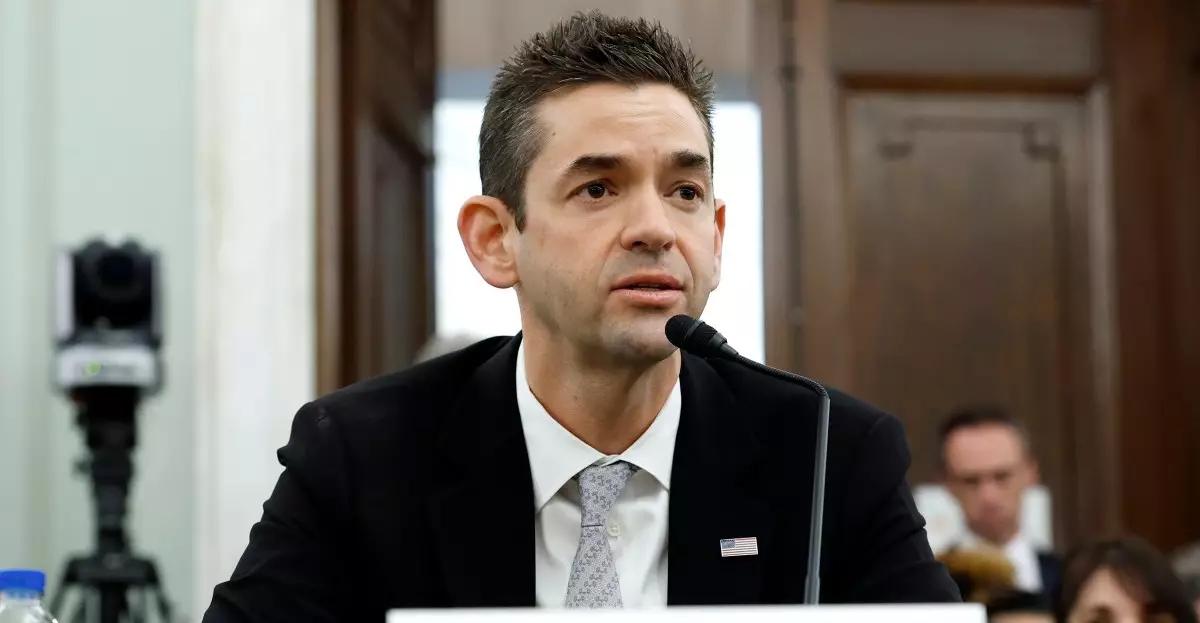The recent withdrawal of Jared Isaacman’s nomination to head NASA has sent ripples through the space exploration community, unearthing the often murky relationship between politics and scientific advancement. A billionaire entrepreneur known for his ventures into commercial spaceflight, Isaacman became a prominent figure for his participation in SpaceX missions, including the historic Inspiration4 and Polaris Dawn. However, his ascent to NASA’s helm was abruptly halted—a move reportedly stemming from his previous political donations to Democratic figures, revealing uncomfortable truths about how partisan politics can interrupt scientific progress.
Political Donor or Space Pioneer?
At the heart of the issue are Isaacman’s financial contributions to Democratic candidates, including Arizona Senator Mark Kelly. The Trump Administration’s decision to pull his nomination underscores a broader narrative where support for one party can overshadow qualifications and achievements. Isaacman’s impressive credentials as a space entrepreneur and advocate for technological progress were seemingly eclipsed by his past political affiliations. As the Trump Administration navigates the complex waters of political loyalty, one must wonder if the exceptional leadership qualities and innovative mindset that figures like Isaacman bring are dismissed in favor of partisan allegiance.
NASA’s Future in Jeopardy
With Isaacman’s departure from consideration, the future of NASA remains uncertain. The Biden administration’s proposed budget cuts of nearly 25% for NASA, coupled with a staggering 47% cut to science programs, paint a bleak picture for the agency’s mission and vision. This misguided allocation of resources reflects a concerning trend where science is deprioritized in favor of other political objectives. Organizations like The Planetary Society describe these recommendations as an “extinction-level event,” indicating a profound risk to the nation’s space initiatives and the long-term implications of undermining scientific inquiry.
A Leadership Vacuum at NASA
The lack of a confirmed successor to Isaacman accentuates a leadership vacuum that could hinder NASA’s momentum. A former senior official’s analogy likening the administration’s current approach to “going-out-of-business mode” highlights the dire need for decisive, visionary leadership aligned with the ambitions of America’s space exploration agenda. The insistence that the next candidate must be in full alignment with the “America First” agenda risks alienating seasoned professionals who could propel NASA forward based on merit and expertise rather than political alignments.
The Trade-off Between Innovation and Ideology
As the presidential office prepares to nominate Isaacman’s replacement, one cannot help but reflect on how closely intertwined our political systems are with scientific endeavors. The premise that innovation should be sidelined due to political donations introduces a troubling narrative whereby potential advancements in space exploration are sacrificed at the altar of partisan politics. This case serves as a reminder that the path to progress is riddled with ideological landmines, and in an era where space exploration offers infinite possibilities, we must remain vigilant against the encroachment of political considerations in scientific fields. The future of NASA, and indeed humanity’s journey into the stars, may well depend on overcoming these political hurdles.

